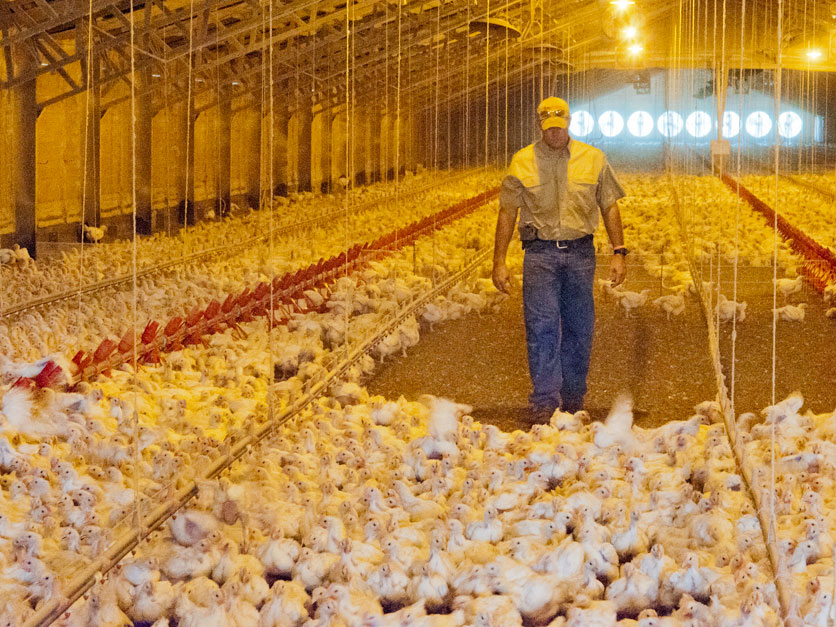There has been a steep drop-off in detections of highly pathogenic avian influenza (HPAI) across the country compared to last year's peaks, but USDA officials and poultry industry groups have no plans to relax precautions.
Speaking on Agri-Pulse Newsmakers, Jenny Lester Moffitt, USDA's undersecretary for marketing and regulatory programs, said safety measures are responsible for the decline in HPAI.
“A lot of it is due to and thanks to the work that producers have been doing implementing … their biosecurity plans,” said Lester Moffitt, who as head of the MRP mission area oversees USDA's Animal and Plant Health Inspection Service.
She noted the USDA will continue its constant monitoring of the virus and was hopeful the new National Bio and Agro-Defense Facility in Manhattan, Kansas, will provide research “on all different consequential animal diseases” we’re facing.
Joel Brandenberger of the National Turkey Federation agreed, saying the reason farm-to-farm transmissions are down “speaks to really enhanced biosecurity programs.”
Brandenberger stressed the importance for producers and industry stakeholders to remain vigilant.
“We're encouraged by where we are right now, but no one's ready to declare victory,” Brandenberger said.
Wild birds carrying the disease still represent an ongoing threat to poultry producers and their flocks. Lester Moffitt said federal officials plan to maintain partnerships across the country to ensure monitoring of the disease remains a priority.
Don’t miss a beat! It’s easy to sign up for a FREE month of Agri-Pulse news! For the latest on what’s happening in Washington, D.C. and around the country in agriculture, just click here.
“We know the virus is still prevalent in the wild bird population,” Lester Moffitt said. “And so the partnerships with state animal health officials as well as producers, industry, academia, to make sure that we continue to do robust surveillance … that the industry continues to implement the biosecurity plans is a really important part of that.”
Earlier this year the Biden Administration moved forward with HPAI vaccine trials, an issue that has divided industry players and producers in the past.
Ashley Peterson, senior vice president of scientific and regulatory affairs at the National Chicken Council, said on the show that a vaccine could threaten exports of poultry meat and genetics. She said reaching an agreement with trading partners is vital before deploying a vaccine.
“We export about 17% of our production, which equates to almost 7.5 billion pounds of chicken,” Peterson said.
This week’s Agri-Pulse Newsmakers can be viewed on Agri-Pulse.com.
For more news, go to www.Agri-Pulse.com.


